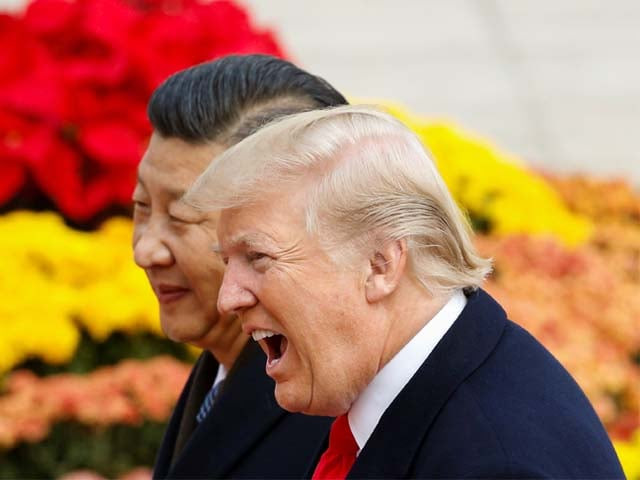The White House recently declassified the 2017 “United States Strategic Framework for the Indo-Pacific”. The document presents a fascinating look at how the outgoing Trump Administration sought to unsuccessfully contain China over the past four years. According to National Security Advisor Robert C. O’Brien, the decision was made to declassify the document in order “to communicate to the American people and to our allies and partners, the enduring commitment of the United States to keeping the Indo-Pacific region free and open long into the future”, which hints that the real intent is to box Biden into continuing Trump’s policies.
It’s unprecedented that a document of such grand strategic importance would be declassified just four years after its promulgation, especially since the guidelines proposed within it are still in effect. Some of Trump’s opponents might even argue that this represents a threat to American national security, one which he carried out with the short-term intention of pressuring his successor. In any case, it’s actually a welcome move from the perspective of the international community since it clarified a lot of important questions about the nature of American policy towards the Indo-Pacific.
Up until the document’s declassification, it was considered by many in the Mainstream Media to be a so-called “conspiracy theory” to claim that the US is feverishly trying to contain China. But lo and behold, the strategic framework literally starts off by describing America’s main “national security challenge” in the following way: “How to maintain U.S. strategic primacy in the Indo-Pacific region and promote a liberal economic order while preventing China from establishing new, illiberal spheres of influence, while cultivating areas of cooperation to promote regional peace and prosperity?”
Interestingly, one of the US’ “assumptions” is that “A strong India, in cooperation with like-minded countries, would act as a counterbalance to China”. Among America’s “desired end states” is that “India’s preferred partner on security issues is the United States. The two cooperate to preserve maritime security and counter Chinese influence in South and Southeast Asia and other regions of mutual concern. India maintains the capacity to counter border provocations by China.” To that particular end, the strategic framework recommends that the US “Offer support to India – through diplomatic, military, and intelligence channels – to help address continental challenges such as the border dispute with China”.
It’s noteworthy that this was suggested in 2017, three years before last summer’s deadly clashes that China blamed India for provoking. In hindsight, exactly as many observers concluded at the time, the US was attempting to use India to “counterbalance” China as is now convincingly proven by the declassification of the strategic framework. Not only did that military aspect of the US’ grand strategy fail, but so too did its informational counterpart of “developing a robust public diplomacy capability, which can compete with China’s information campaigns” and “educating” the world “about China’s ability to coerce allies and partners.”
In other words, not only does the document propose militarily containing China through India, but also waging a “robust” information war against it, both objectives of which failed. The Trump Administration also didn’t succeed in its policy to “Build an international consensus that China’s industrial policies and unfair trading practices are damaging the global trading system” as proven by last year’s creation of the Regional Comprehensive Economic Partnership (RCEP), which is the world’s largest trading bloc. Upon considering all of this, Trump’s declassification backfired. It was intended to pressure Biden, but only revealed Trump’s failures.
With the US’ grand strategic secrets out in the open due to none other than its Commander-in-Chief’s short-sighted and self-interested decision to declassify them for the purpose of boxing in Biden, the whole world now sees just how badly he failed over the past four years in his crusade to contain China. He shouldn’t have spilled the beans like he did, but by doing so, he did a massive service to the world since no historian can now credibly claim that his previously speculative Indo-Pacific strategy was a success. It wasn’t, at all, since China survived the US’ attempted containment of it and emerged much stronger as a result.



COMMENTS
Comments are moderated and generally will be posted if they are on-topic and not abusive.
For more information, please see our Comments FAQ